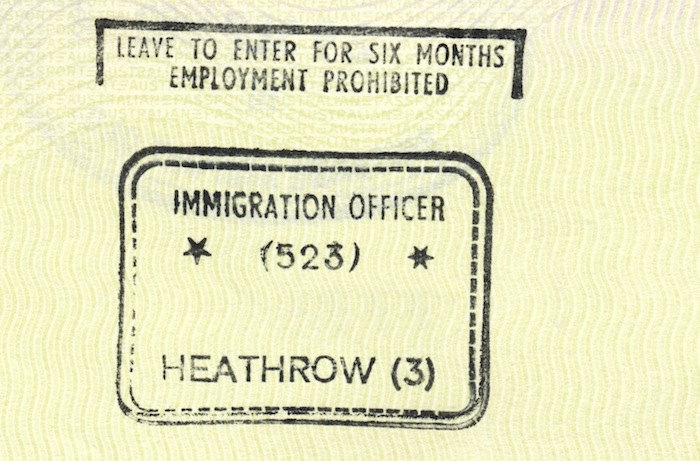Innumerable immigration crises have taken place in Western Europe over the past decade, with the internal strife of many developing countries pushing people from their homes, and the lure of western wealth pulling them towards Europe.
As the Vietnamese tragedy has shown, much of this migration takes place illegally, immigrants breaking through state borders; but attention should also be paid to the many who enter legally, before vanishing from the eye of the state. The Times’ report on Monday gave a clear example of this, demonstrating how private schools and colleges can be used as a loophole, allowing traffickers to circumnavigate border control, before whisking the students away into indentured servitude.
Rather than being a tragedy which recedes from public view, becoming another chorus in a long litany of wrongs, the death of the Vietnamese migrants should be used to spur on immigration reform. Whilst the harm of illegal immigration is a constant refrain for many politicians and ministers, there are degrees of magnitude between the amount of time spent discussing the flaws endemic in the system, and the time spent actually considering and implementing reform.
Admittedly, the challenge is not one dimensional, but a plethora of factors tangled into a seemingly unresolvable knot. And when politicians are faced with the choice between a task that can be taken on, completed and pitched to the public as an achievement, and a task which may take a political term, with significant risk that the effort will be to no avail, it is hardly surprising that most choose the former option. However, should the system be approached incrementally, each knot painfully undone, the establishment of an effective, humane immigration policy is not beyond our reach.
Focusing on human trafficking, especially child trafficking, would prove a practical and sympathetic first step, particularly for those children who are taken into local authority care. The Times has reported that Epcat, a charity which cares and campaigns for trafficked children, have found that a quarter of trafficked children put into local authority care have gone missing, and that the number of Vietnamese students reported as victims of trafficking has risen from 135 in 2012 to over 700 in 2018. Whilst locating trafficked children may be difficult, ensuring that they do not return into the hands of their traffickers after they have been identified should be a less challenging endeavour, provided the authorities are given the resources to do so.
Similarly, that children are disappearing from independent schools suggests that the process of acquiring student visas is too easily defrauded. For childrens’ Tier 4 visas, there is no requirement for any level of fluency in English, which may be a coherent policy for children moving abroad with their parents, but seems ill-suited for students moving to study independently. Instead, the visa is granted once proof to pay any relevant fees is provided, alongside the offer of a place. Such a system is woefully overexposed to the risk of fraud, with traffickers viewing it as a cheaper, more certain way of moving children into the UK.
Requiring every applicant to be interviewed may be a more costly exercise, but would almost certainly be cheaper than expending resources to locate and rehabilitate children who have been trafficked to the UK. Further, if a reasonable fluency in English was required, it would mitigate the risk of trafficking victims being isolated, unable to communicate or seek help once in the UK. As Janice Turner has written in The Times (here), the number of young, Asian women interned in nail salons, seemingly unable or unwilling to speak English, should be cause for alarm, rather than accepted as the cost of an affordable manicure.
Instead of treating such workers with contempt, moving towards a more humane approach in dealing with trafficking victims would help to expose traffickers, whilst recognising that persecuting those who are exploited by them in aspiring to a better life here achieves little. Today’s announcement by the Essex Police, seeking information on the 39 Vietnamese migrants, that they cannot guarantee those who come forward will not have their immigration status passed onto the Home Office, is a tragic example of the myopic thinking of the state. Such an announcement will merely limit the information received, whilst condemning those naive or uncomprehending enough to still come forward to a period of incarceration in our detention centres, doing nothing to resolve the crisis.
Alongside all of this is the fact that many of these trafficking victims come here to seek a better life. Oddly, their fantasy is unlikely to be one of slaving away in nail salons for sixty hours a week, earning a pittance, if anything. More should be done to expose the fantasies sold by traffickers, emphasising that whilst life in England may be better than in Vietnam, these fantasies are just that, and will evaporate once exposed to reality in the UK.







